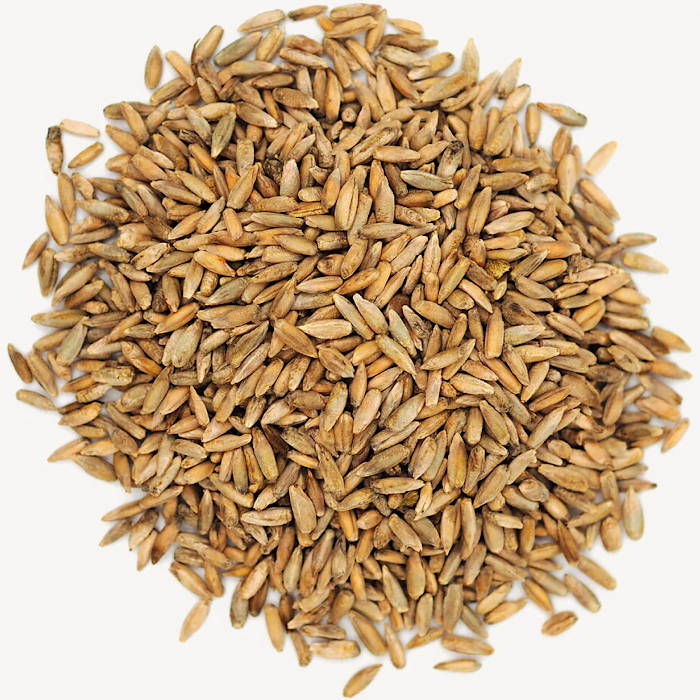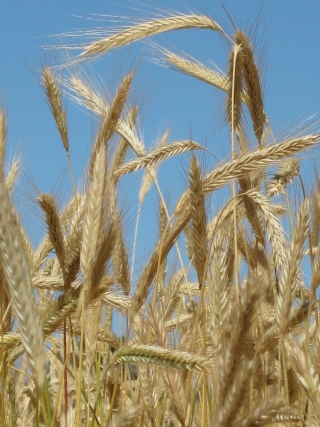Rye Grain

Details
Whole rye grains are the entire unprocessed kernels of the rye plant, a hardy cereal grain commonly grown in cooler climates. These grains are rich in dietary fibre, essential minerals like manganese and phosphorus, and antioxidants.
Whole rye has a robust, earthy flavour and a chewy texture, making it a popular choice for hearty dishes. Rye grains can be cooked and used in salads, soups, or pilafs, offering a nutty and satisfying base. They can also be sprouted for use in bread or other recipes. When ground, they become rye flour, a key ingredient in traditional breads like pumpernickel and sourdough.
Whole rye grains are valued for their nutritional benefits and versatility, making them a staple in many cuisines.
Whole rye has a robust, earthy flavour and a chewy texture, making it a popular choice for hearty dishes. Rye grains can be cooked and used in salads, soups, or pilafs, offering a nutty and satisfying base. They can also be sprouted for use in bread or other recipes. When ground, they become rye flour, a key ingredient in traditional breads like pumpernickel and sourdough.
Whole rye grains are valued for their nutritional benefits and versatility, making them a staple in many cuisines.
Order
Rye
Rye grows much better in cooler and drier regions than wheat, and also performs well on sandy soils. Rye is a 'light' germinator needing to be sown shallowly into a well prepared seed bed. Compaction or wet feet have a severe effect on rye and yields can slump dramatically if such conditions arise. It is wind pollinated to a substantial degree. This allows the introduction of outside lines which become 'integrated' over subsequent generations –
the rye variety on Milmore Downs has developed over 30 years from four main seed sources.
Our rye is popular because it bakes well (typically falling number values are high). However, the baking qualities of rye flour are fundamentally different to those of wheat. This is due to the enzyme constituents - rye flour has amylum destructive amylases which hinders raising and therefore it needs to be baked using sourdough as the raising agent. Pumpernickel, made solely from rye flour and kibbled rye is a well known type of rye bread, but very often rye is mixed into bread made with other grains.
Our rye flour is a wholemeal flour and milled in Zentrofan mills which produced a very finely milled flour. Learn more about our grain processing.
All rye products are BioGro* certified
the rye variety on Milmore Downs has developed over 30 years from four main seed sources.
Our rye is popular because it bakes well (typically falling number values are high). However, the baking qualities of rye flour are fundamentally different to those of wheat. This is due to the enzyme constituents - rye flour has amylum destructive amylases which hinders raising and therefore it needs to be baked using sourdough as the raising agent. Pumpernickel, made solely from rye flour and kibbled rye is a well known type of rye bread, but very often rye is mixed into bread made with other grains.
Our rye flour is a wholemeal flour and milled in Zentrofan mills which produced a very finely milled flour. Learn more about our grain processing.
All rye products are BioGro* certified
